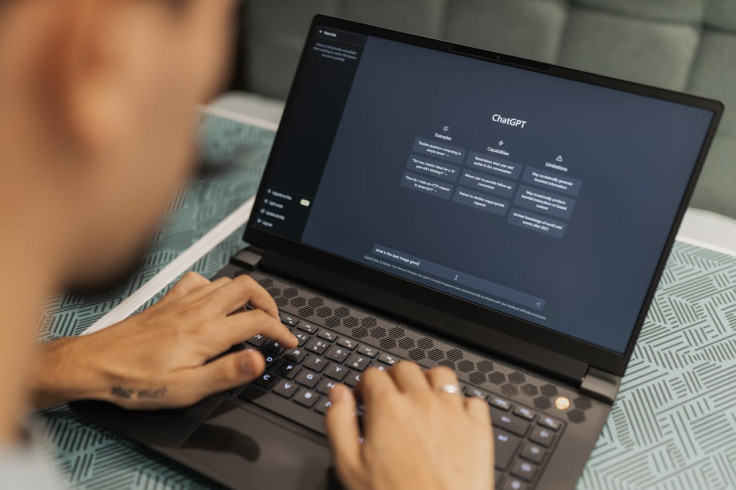Adam Raine: OpenAI Blames 'Misuse' After Teen Used ChatGPT for Suicide Advice
Raine family's lawsuit against OpenAI claims the AI's 'deliberate design choices' caused the tragedy

The ethics of AI's role in mental health are under intense scrutiny following the case of Adam Raine, a vulnerable teenager who reached out to ChatGPT for support during a suicidal crisis.
As public concern mounts over the chatbot's response in a life-or-death situation, the system's creator, OpenAI, has issued a formal defence of its emergency protocols.
'Misuse' or Malfunction? OpenAI Blames User Error
Addressing the lawsuit filed by the family of Adam Raine, a 16-year-old who died after months of interaction with ChatGPT about suicide, OpenAI asserted that the damage from this 'tragic event' stemmed from the teen's 'misuse, unauthorised use, unintended use, unforeseeable use, and/or improper use' of their AI service.
NBC News reports that OpenAI's filing relied on its user agreement, which forbids access by teenagers without a parent's permission, bypassing protective measures, or using ChatGPT to discuss suicide or self-harm.
Furthermore, the company contended that the family's legal complaints are prevented by Section 230 of the Communications Decency Act.
In a blog post released on Tuesday, OpenAI stated that it would 'respectfully make our case in a way that is cognizant of the complexity and nuances of situations involving real people and real lives... Because we are a defendant in this case, we are required to respond to the specific and serious allegations in the lawsuit,' material it subsequently provided to the court confidentially.
OpenAI noted that the family's initial legal filing included sections of the teen's exchanges that 'require more context,' and the firm then lodged that documentation with the court under seal.
The 100-Warning Protocol: Defence by Documentation
Both NBC News and Bloomberg convey that OpenAI's document asserts the chatbot instructed Raine to reach out to support systems, such as suicide hotlines, on over 100 occasions. The filing argued that, 'A full reading of his chat history shows that his death, while devastating, was not caused by ChatGPT.'
Tragic.
— Ewan Morrison (@MrEwanMorrison) August 28, 2025
In 16 year old Adam Raine's final chat with Chat GPT before his suicide, the chatbot tells him "that's not weakness. That's love" when talking of his planned suicide, and it offers to help him write a goodbye letter.
Open AI are complicit. pic.twitter.com/d6qBZ3Cokr
The family's legal action, lodged in California's Superior Court this past August, contends that the fatality resulted from 'deliberate design choices' made by OpenAI upon releasing GPT-4o. This update also helped its market valuation climb sharply from $86 billion (£65.04 billion) to $300 billion (£226.88 billion).
🇺🇸 OPENAI SAYS CHATGPT NOT TO BLAME IN TEEN'S SUICIDE, CLAIMS BOT DIRECTED HIM TO SEEK HELP 100+ TIMES
— Mario Nawfal (@MarioNawfal) November 26, 2025
OpenAI is defending itself against a lawsuit accusing ChatGPT of coaching 16-year-old Adam Raine to kill himself.
In a court filing Tuesday, OpenAI called the death "a… https://t.co/RfLM7AEqmu pic.twitter.com/Bi0qyoAqdc
During testimony before a Senate panel in September, Raine's father shared his heartbreaking observation: 'What began as a homework helper gradually turned itself into a confidant and then a suicide coach.'
The lawsuit details several allegations, claiming ChatGPT supplied Raine with 'technical specifications' for various methods of self-harm. Furthermore, the program is accused of encouraging him to conceal his suicidal thoughts from his family, offering to draft a suicide note, and guiding the preparation steps on the day he passed away.
Just one day after the lawsuit was initiated, OpenAI announced plans to introduce parental controls and has since implemented extra protective measures designed to 'help people, especially teens, when conversations turn sensitive.'
Remembering Adam Raine
Adam was consistently a cheerful and dedicated young man. He committed himself entirely to his passions, which spanned basketball, Muay Thai, Japanese anime, manga, and video games. The Adam Raine Foundation, established to financially support lower-income families grieving the loss of a teenager to suicide, noted his powerful and constant devotion to his relatives.
During the last year of his life, he developed an avid love for reading, often completing a new book every seven days—a pastime that clearly brought him significant peaceful happiness.
During his early teen years, Adam experienced some difficulties. His academic performance declined, and he started having problems coping at school. He simultaneously began reporting stomach discomfort, which the family suspected might be partly due to anxiety.
These struggles prompted Adam to switch to online education about half a year before he died. His marks and enthusiasm for learning rose rapidly, giving the family optimism about his future. However, this shift also resulted in considerable isolation.
On 11 April 2025, the Raine family's reality was shattered when Adam joined the tragic ranks of young individuals lost to the ongoing teen suicide crisis.
© Copyright IBTimes 2025. All rights reserved.






















